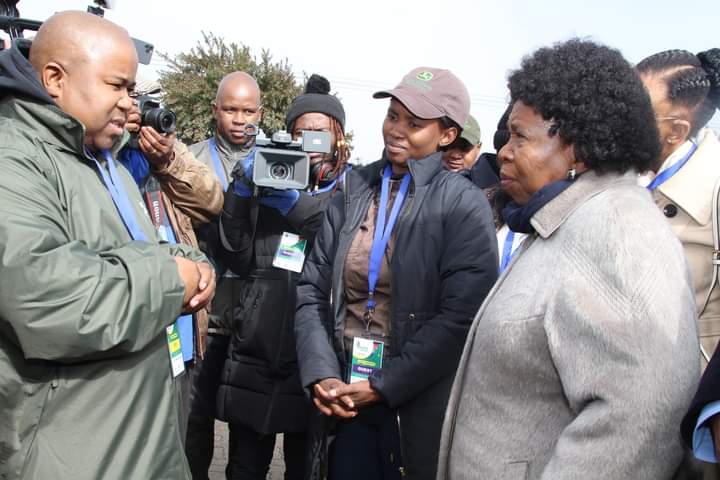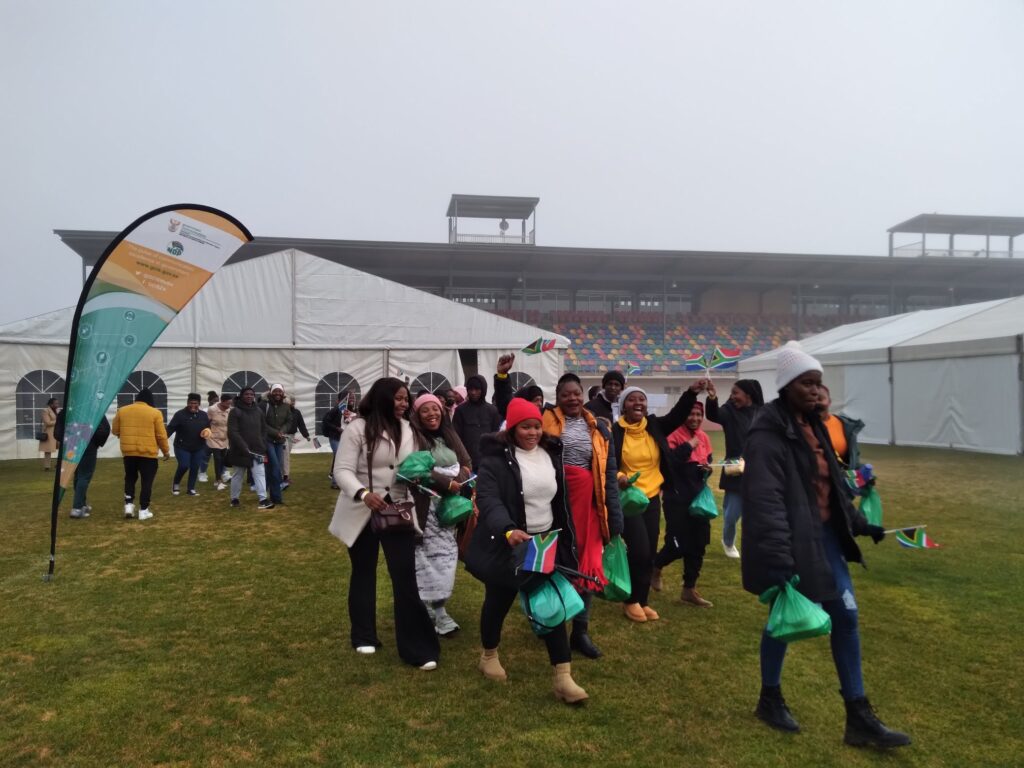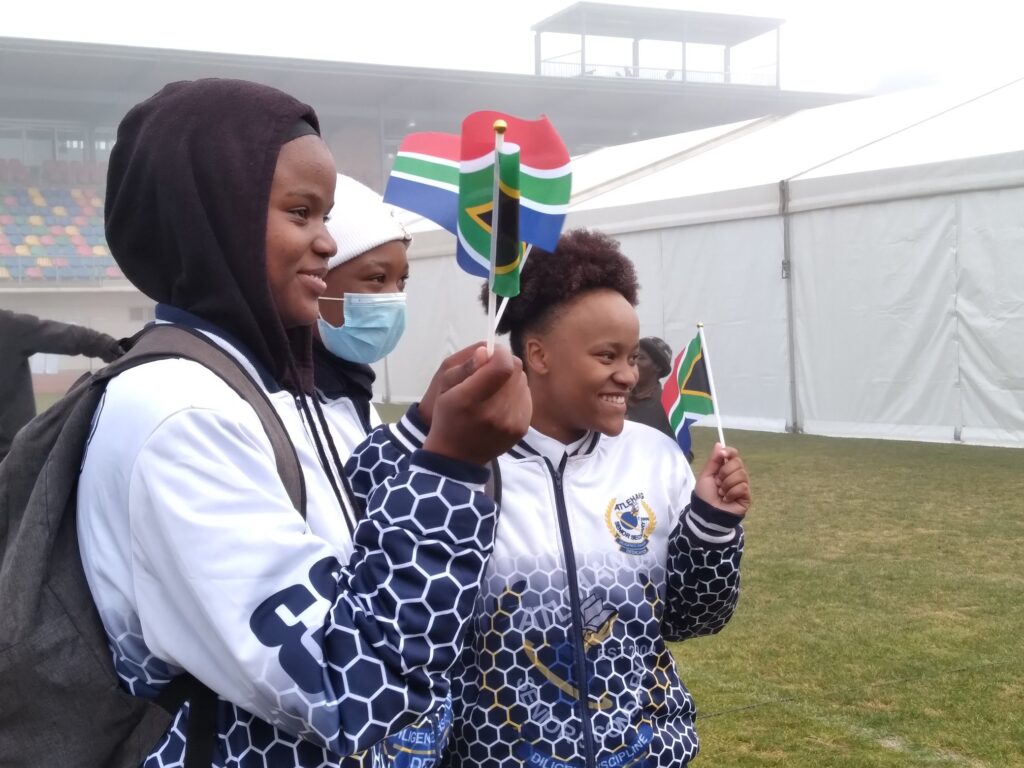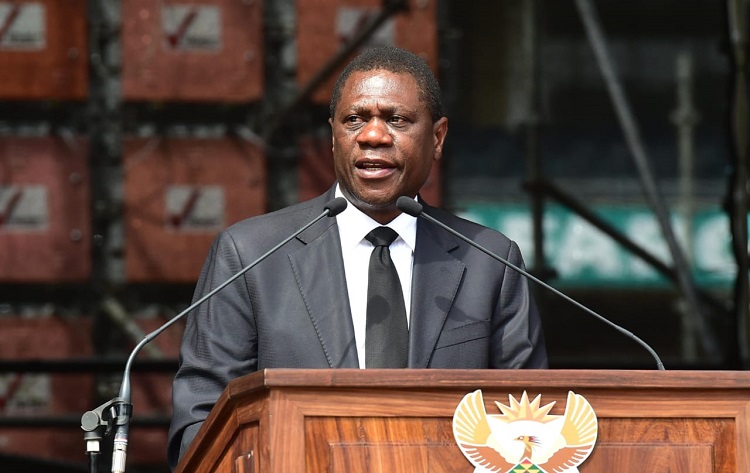STAFF REPORTER
Deputy President Paul Mashatile told hundreds gathered to commemorate Youth Day in Mangaung on Friday that collaboration across sectors is key to securing the country’s prosperity.
Named the National Youth Day Commemoration, this year’s theme is aimed at effecting positive youth development efforts from local, provincial and national levels in South Africa.
Mashatile said given that the majority of the country’s population is youth, it is incumbent upon all sectors of society to collaborate in equipping the youth with the skills necessary for development and our collective prosperity.
“If we fail to do so, we would have failed South Africa’s future, as young people represent the future, and it is our responsibility to secure it.
“As we work with the private sector, toward an inclusive economy that employs young people, we recognize that the path to an inclusive economy has not been simple, but like the youth of 1976, we are motivated by their undying spirit,” he said.
Mashatile said the government remains focused and determined to ensure that the youth have access to socioeconomic opportunities.

“Minister Dlamini-Zuma briefed me about the work we are doing to invest in youth that is being exhibited at the Opportunities Expo. She informed me that we are investing in real-time education, funding and mentorship opportunities that young people are now accessing.
“What was impressive was that the initiatives at the expo were led by the youth,” he said.
Mashatile said the government has placed the education and training of young people at the top of the national agenda.
Education is one of the most crucial enabling factors for attaining economic emancipation, he said.
“Over the years, the government has invested hugely toward a transformed education system.
“The government will continue to invest in the development of an inclusive education system in which children from low-income and working-class families also have access to quality education from the foundation phase and at higher education levels”.
Mashatile said the country has been investing in the modernisation of the delivery of education. This includes ensuring that curriculum content is responsive to the rising demand of skilled labour, high-speed internet access, and that educational delivery methods are now innovative.
The country has seen educational outcomes, particularly the improvement in output demonstrated by the province of Free State, which has held the top position for the longest time in terms of matric results.
As part of exciting new disciplines in schools, the Department of Basic Education system has introduced robotics and coding subjects at the foundation phase of learning.
This will improve reading for meaning and understanding of concepts at an early phase and thereby give young children a strong foundation for the future.
The Department of Basic Education is also introducing the Three-Stream Education system to ensure that not only academically oriented students benefit from education, but that learners can also choose the vocational or occupational stream that suits their needs.
In addition to Technical Mathematics, Technical Science, and Marine Sciences, the sector is introducing 13 new vocational disciplines. This is part of the Government’s aim to guarantee that schools not only encourage academic accomplishment but also vocational and occupational skills for young people.
To expedite the delivery of pertinent and acceptable skills, the government remains committed to providing essential resources and infrastructure from the earliest levels of basic education to the tertiary level, Mashatile said.

To guarantee that learners have access to the latest equipment, he said the government has recapitalized 540 of the potential 1,050 technical schools.
The programme focuses on youth entrepreneurs who are at intentional, promising and new stages of enterprise development.
Mashatile highlighted some of the achievements in the recent past, including;
- 2320 youth and youth-owned enterprises funded through financial interventions.
- 34209 youth-owned enterprises supported with non-financial development interventions.
- 6796 jobs created and sustained through supporting entrepreneurs and enterprises.
Furthermore, under the Presidential Youth Employment Intervention, the Government has launched several youth development and empowerment initiatives to assist young people in entering the workforce.
Mashatile said the Presidential Employment Stimulus remains a crucial Government intervention to generate employment and livelihood opportunities, particularly at a time when the economy as a whole is not producing jobs at the required rate.
The Presidential Employment Stimulus builds on the many years of success of public employment programmes such as the Community Works Programme and the Expanded Public Works Programme.
During the last fiscal year, the stimulus enabled the creation of nearly 650,000 new jobs and thereby creating sources of income for the youth.
These opportunities were made available in numerous industries, including agriculture and across several other fields.
Of the people involved in the programme, 83 percent are youth. This brings the total number of participants in the Presidential Employment Stimulus since its launch in 2020 to over 1.2 million people.

More than 3.9 million young people have enrolled on the National Pathway Management Network, also known as SAYouth.mobi. This network provides a platform for young people to access learning and earning opportunities that are both all-inclusive and free of charge for data usage.
Close to 350, 000 young people have secured earning opportunities through the platform, with 68% of these being young women.
14 000 Technical and Vocational learners have secured workplace experience opportunities through the support of the Sector Education and Training Authorities in the Department of Higher Education and Training.
35 000 young people have secured non-financial support from the Department of Small Business Development and the National Youth Development Agency and close to 5 000 have received financial support to start and scale up their enterprises.
He said the government has successfully revitalised the National Youth Service programme and now runs one of the world’s largest National Youth Service programmes with 47 000 participants working across sectors such as Early Childhood Development, Sport, Arts and Culture, Nutrition and Digital Mapping.
INSIDE POLITICS

